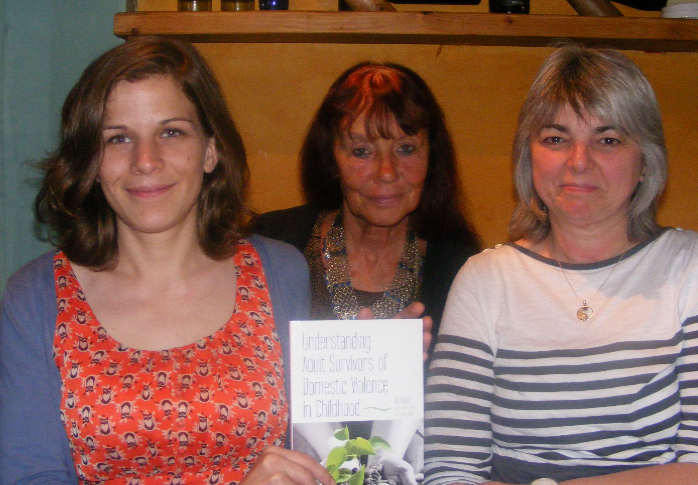JKP authors Gill Hague, Ann Harvey and Kathy Willis explain why their new book Understanding Adult Survivors of Domestic Violence in Childhood: Still forgotten, still hurting begins the task of breaking the silence on this previously neglected subject. They introduce the book and it’s contents including an extract from the poem Arms Outstretched to Them.

This new book is about people who experienced domestic violence between their parents or carers, when they were children, and about the impacts these experiences have had on them into adulthood, which have in many cases been scarring and painful.
There is little research regarding adults with experiences and memories of childhood domestic abuse, but the book looks at what studies do exist and at what we can learn from them. It also looks at the more prolific research which has been conducted about children themselves experiencing domestic violence, as this research can sometimes offer insights for what might happen when the person concerned grows up.
The book goes on to discuss practice, services and policy issues. The idea is that it will be useful to helping professionals, to agencies and to people with this personal history. It also considers recovery techniques including counselling and therapy. It is written in a relatively non-academic and accessible way, whilst remaining academically rigorous. We hope it will be use to adult survivors of domestic violence, to students of social work and the social sciences, to academics, to violence against women researchers, and to practitioners, policy-makers, social workers and counsellors.
This issue is one which has been little explored. Hence the subtitle of the book, a version of which was the authors working title: “Still Hurting, Still Forgotten”. Many who carry memories and traumas of domestic violence from childhood do indeed feel both; that they are still hurting long after the events themselves occurred, and that their plight is one which has been largely forgotten, overlooked and ignored. This book attempts to open up this previously neglected subject as a new area for further research and practice. We are pleased that readers to date have identified the book to be a pioneering one which breaks new ground.
It has an unusual structure in that it also includes creative and personal writing, interwoven with the material for professionals, counsellors, social workers, students, survivors themselves and researchers. Most importantly, it includes a series of moving and powerful poems and personal testimonies, specifically produced for the book by adult survivors of childhood domestic abuse. One poem by a middle-aged Scottish women talks about how long the painful impacts of experiencing childhood domestic violence can endure. Her words might have resonance for others reading the book. She says that:
She couldn’t help remembering,
even though she’s well past 50,
The feeling of the shades coming down.
Her father mad with fury.
But she couldn’t stop it,
couldn’t stop him.
Crying and sobbing,
tears dripping off her chin.
She couldn’t stop him.
She couldn’t help remembering.
And she learned not to sleep.
She dreaded anyone suspecting.
She couldn’t help remembering.
Her expectant young life reduced to
what felt like fragments
bitter
and a tangled feeling.
She couldn’t help remembering.
Even though she’s well past 50.
But she couldn’t stop it,
crying and sobbing,
arms outstretched to them.
Even though she’s well past 50.
A final note from Gill Hague:
This is the last and closing book of my career and I am proud of it. The final words of the last poem are: “It is finished. It is over”. They apply to the individual poem, to the poet’s personal recovery, to the book itself, and to my own career and 40 year journey working on violence against women issues. I trust that this final book will be of use in the field to both practitioners and researchers, as well as to people themselves who carry life experiences of domestic violence in childhood.